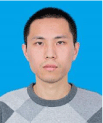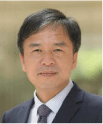Articles citing this paper
Hippo signaling in cancer: regulatory mechanisms and therapeutic strategies
Zhao Huang A , Yunhan Tan A B , Wei Zhang C D E , Xiangdong Tang F , Edouard C. Nice G * and Canhua Huang
A , Yunhan Tan A B , Wei Zhang C D E , Xiangdong Tang F , Edouard C. Nice G * and Canhua Huang  A *
A *
A Department of Biotherapy, Cancer Center and State Key Laboratory of Biotherapy, West China Hospital, Sichuan University, Chengdu, 610041, China.
B West China Hospital of Stomatology, Sichuan University, Chengdu, 610041, China.
C Mental Health Center and Psychiatric Laboratory, The State Key Laboratory of Biotherapy, West China Hospital, Sichuan University, Chengdu, 610041, China.
D West China Biomedical Big Data Center, West China Hospital, Sichuan University, Chengdu, 610041, China.
E Medical Big Data Center, Sichuan University, Chengdu, 610041, China.
F Sleep Medicine Center, Department of Respiratory and Critical Care Medicine, Mental Health Center, Translational Neuroscience Center, and State Key Laboratory of Biotherapy, West China Hospital, Sichuan University, Chengdu, China.
G Department of Biochemistry and Molecular Biology, Monash University, Clayton, Vic., Australia.

Zhao Huang is currently postdoctor in Department of Biotherapy, Cancer Center and State Key Laboratory of Biotherapy, West China Hospital, Sichuan University. His research focuses on the tumor biology including the growth, metastasis and drug resistance of cancers. |

Yunhan Tan is currently an undergraduate student in West China School of Stomatology, Sichuan University. Her research focuses on the application of nanotechnology and immune therapy for head and neck squamous cell carcinomas. |

Prof. Wei Zhang graduated from the Clinical School of Medicine of West China University of Medical Sciences in 1985 and obtained a master’s degree in medicine in 1992. He has been working in West China Hospital since then. He is currently deputy secretary of the Party Committee of Sichuan University, the chief scientist of the Medical Big Data Center of Sichuan University and the director of the Biomedical Big Data Center of West China Hospital. He has successively undertaken over 20 projects including National 863 Program, National 973 Program, the 10th Five-Year Plan, the 11th Five-Year Plan, the 12th Five-Year Plan, the 13th Five-Year Plan, and National Natural Science Foundation projects. He has been awarded the First Prize of Natural Science by the Ministry of Education and the First Prize of Scientific and Technological Progress by Sichuan Province, among other awards. Under his leadership, the team has established a comprehensive biological database of depression and anxiety disorders in the Chinese population. His team is interested in providing a basis for early prevention, early diagnosis, and early personalized treatment of mental disorders. |

Prof. Xiangdong Tang is the chief physician of Mental Health Center, West China Hospital, Sichuan University. He has been engaged in the basic and clinical research of sleep disorders for a long time, and is good at the diagnosis and treatment of common sleep problems such as insomnia, dreaminess and rhythm disorder, as well as sleep disorders related to breathing. He is the academic and technical leader in Sichuan Province, vice chairman of the Sleep Medicine Expert Committee of the Chinese Medical Doctor Association, deputy director of the Sleep and Mental Health Professional Committee of the Chinese Sleep Research Association, and deputy director of the Sleep Disorders Professional Committee. He has been responsible for and participated in 7 scientific research projects, and has published over 100 SCI papers. |

Prof. Ed Nice obtained his Licentiate from the Royal Institute of Chemistry in London in Advanced Analytical Chemistry in 1972 and Fellowship of the Chemical Society London in 1973. He is currently Adjunct Professor at Monash University where he is Head of the Clinical Biomarker Discovery and Validation (Department of Biochemistry and Molecular Biology) and a scientific advisor to the Monash Antibody Technologies Facility (MATF), of which he was Director from 2009–2013. He holds a Visiting Professorship at Sichuan University s West China Hospital and an Adjunct position at Macquarie University. Ed s long-term research interests have been in biomarker discovery and validation, high throughput monoclonal antibody production and validation and clinical biomarker assay development, with a strong translational focus on colorectal cancer. |

Prof. Canhua Huang returned to China in 2005 and was appointed as a Professor of the State Key Lab of Biotherapy, West China Hospital, Sichuan University. In 2012, he won the National Science Fund for Distinguished Young Scholars of China, and took up the post of the Chief Scientist for National 973 Program entitled “Proteomics Profiling of the Redoxomes Associated with Virus-induced Carcinogenesis†from 2013 to 2017. In 2014, he was hired as the Changjiang Scholars Program Endowed Professor. In 2018, he served as the director of an Innovative Research Group of the National Nature Science Foundation of China, entitled “Redox Signaling Regulation and Carcinogenesisâ€. In 2020, he was a member of the 8th Discipline Evaluation Group of Academic Degrees Committee of The State Council (Basic Medicine Group). He was selected by Elsevier 2020 and 2021 China Highly Cited Scholar and won the First Prize of Natural Science Award of the Ministry of Education in 2020. |
Handling Editor: Mibel Aguilar
Australian Journal of Chemistry 76(8) 399-412 https://doi.org/10.1071/CH22241
Submitted: 21 November 2022 Accepted: 1 June 2023 Published: 7 July 2023


